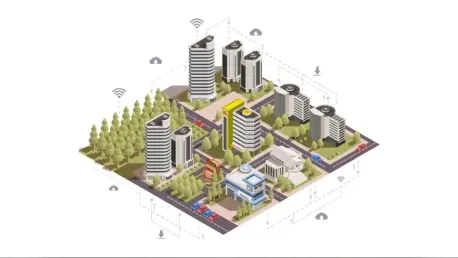
The realm of seismic design is on the cusp of a profound transformation, driven by rapid advancements in technology and materials science. In areas prone to earthquakes, the imperative to construct buildings that can resiliently withstand seismic forces is greater than ever. The integration of

The Architecture, Engineering, and Construction (AEC) sector is undergoing a significant transformation, spurred by the convergence of artificial intelligence (AI) and cutting-edge technology. This evolution is seen most prominently in the transition from 2D to 3D formats. Although Building

Gurgaon, a prominent business epicenter in India, is undergoing a significant transformation with the rise of smart buildings that are revolutionizing the concept of modern workspaces. Beyond merely redefining office environments, these structures serve as vibrant communities catering to the needs

In an era where climate change and sustainability dominate the architectural discourse, the FlectoLine façade system emerges as a groundbreaking innovation. This smart façade solution is engineered to enhance building energy efficiency by dynamically adapting to varying weather conditions.

The smart home technology landscape continues to evolve rapidly, with companies racing to deliver more seamless and integrated solutions to meet consumers' growing expectations. Hisense has embarked on a notable strategic initiative to enhance its smart home ecosystem by integrating Google's new

In the ever-evolving world of home design and innovation, HGTV has unveiled a stunning transformation that redefines contemporary living standards with an impressive blend of technology and design. The result is an awe-inspiring renovation of a classic mid-century modern home, originally built in